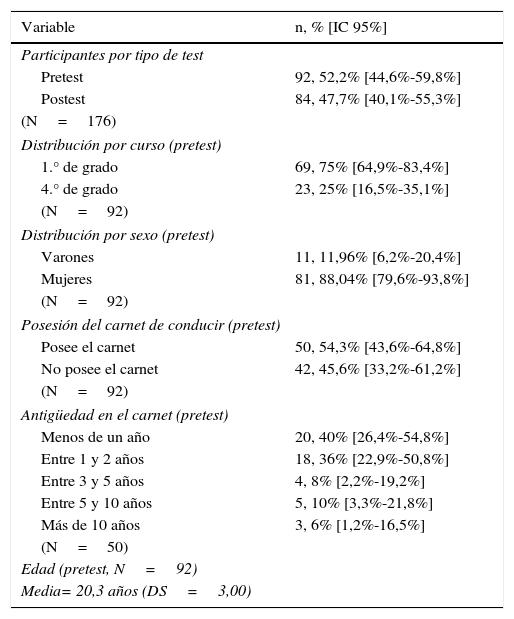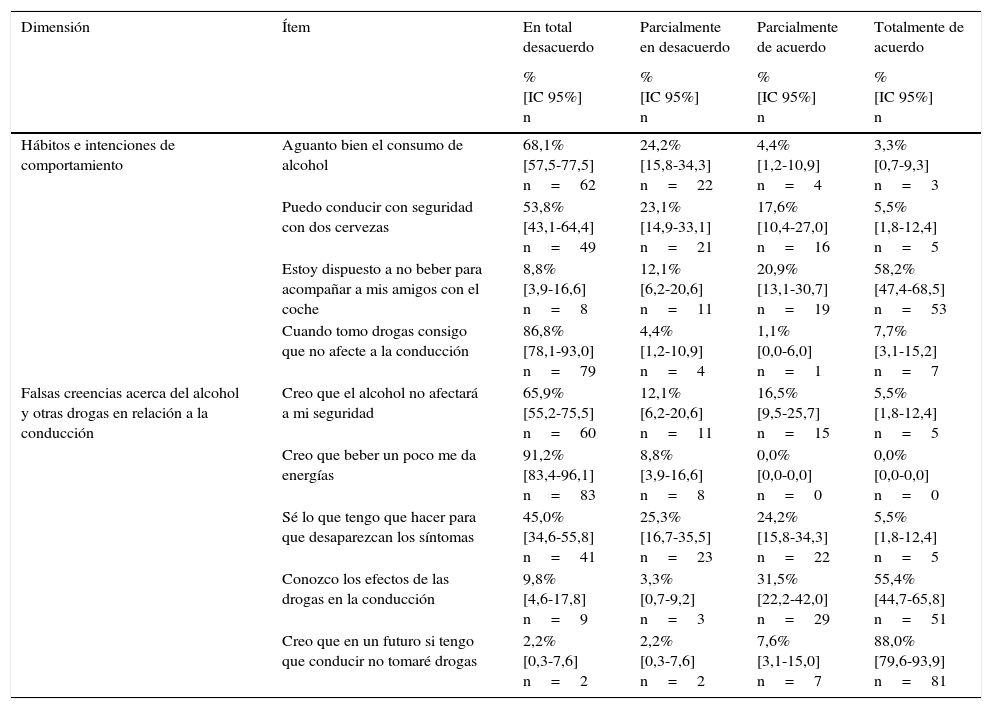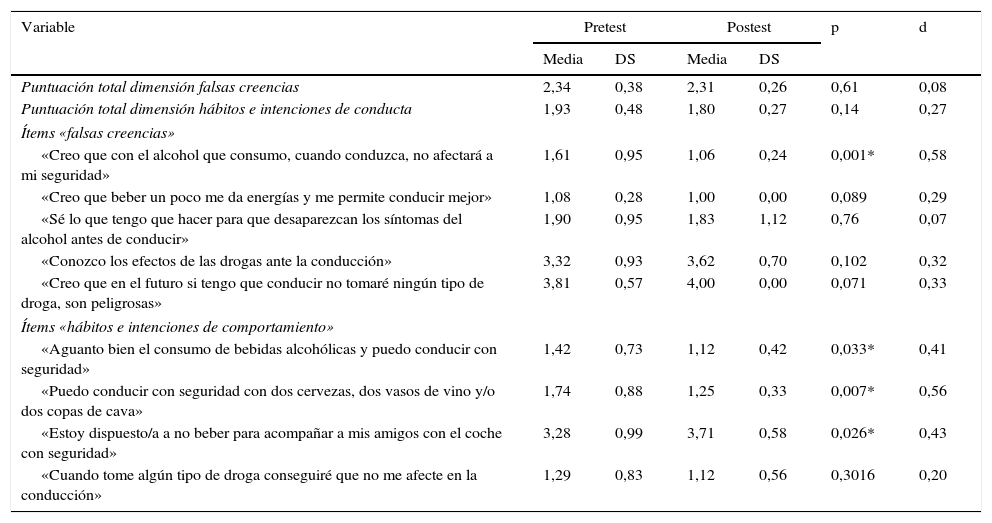Conocer y comparar las actitudes y hábitos del alumnado de Enfermería hacia el consumo de alcohol previo a la conducción y analizar la efectividad de una intervención educativa con testimonios reales para modificar ambos.
MétodoDiseño analítico y cuasiexperimental pretest y postest. Población compuesta por estudiantes de Enfermería del Centro de Enfermería Cruz Roja de Sevilla, sometidos a una actividad formativa basada en el testimonio real de protagonistas de accidentes de tráfico ocasionados por el alcohol. Se empleó cuestionario específico sobre falsas creencias e intenciones de comportamiento.
ResultadosLa media de las respuestas relacionadas con las falsas creencias del alumnado de primero es de 2,73 (desviación estándar [DS]=0,14) frente a 2,29 (DS=0,27) de cuarto. En las preguntas relacionadas con las intenciones de comportamientos de riesgo, primero tiene una media de 2,01 (DS=0,51) y cuarto de 1,76 (DS=1,76). Estas diferencias no resultaron ser significativas. No se hallaron diferencias significativas antes y después de la intervención respecto de las dos dimensiones globales estudiadas. Los resultados desagregados por ítems muestran que la intervención redujo significativamente la creencia de que el alcohol no afecta a la seguridad (p=0,001) y la intención de no beber para acompañar a los/as amigos/as con el coche (p=0,026) entre otras.
ConclusionesLa intervención analizada ejerce una influencia positiva pero de carácter limitado. Se recomienda reiterarla en el tiempo para mejorar sus estilos de vida y a su vez, sirva para mejorar los hábitos de salud de la población general en el futuro.
Knowing and contrasting attitudes and habits toward alcohol when it comes to driving among nursing students and to analyze the effectiveness of an educational intervention with testimonies in order to modify them.
MethodAnalytical and quasiexperimental design with pre-test and post-test. The study population consists of students of nursing degree of the Red Cross from Sevilla. The intervention is based on attending an educational activity from people directly and personally experienced on car accidents, narrating their own lived facts. A specific questionnaire was used to measure attitudes and trends of behaviors towards alcohol drinking and driving.
ResultsThe mean of the responses related to the false beliefs of students in first course is 2.73 (standard deviation [SD]=0.14) versus 2.29 (SD=0.27) in fourth. For questions regarding the intentions of risky behavior, first course have a mean of 2.01 (SD=0.51) versus 1.76 (SD=1.76) in fourth. These differences were not found to be significant. No differences were found before and after the intervention on the two global dimensions studied. The disaggregated results per item show that the intervention significantly reduced the belief that alcohol does not affect safety (p=.001) and intention not to drink to accompany friends with your car (p=.026), among others.
ConclusionsThe analyzed intervention has a positive but limited influence. It is recommended to repeat it several times to improve a healthy lifestyle and also to improve the health habits of the general population in the future.
Artículo
Comprando el artículo el PDF del mismo podrá ser descargado
Precio 19,34 €
Comprar ahora











